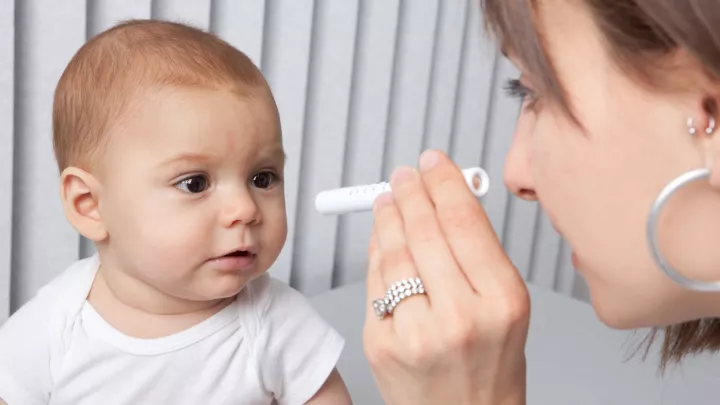Childhood Eye Cancer (Retinoblastoma) Program
Finding out your child may have childhood eye cancer (retinoblastoma) is scary. But when you trust Children’s Hospital Los Angeles with your child’s care, you can rest assured your child is in expert hands.
Our retinoblastoma specialists are global leaders in their field. They are at the forefront of innovation for the diagnosis and treatment of pediatric eye cancer. Our team offers you the safest and most advanced care available.
Childhood Eye Cancer Program: Why Choose Us
Our team understands that pediatric eye cancer is complicated. We are committed to offering exceptional cancer care that includes:
- Innovative diagnostic techniques: CHLA pioneered using a liquid biopsy to diagnose retinoblastoma. This minimally invasive test gives us detailed information and allows us to personalize treatment for your child.
- Comprehensive treatment: We work with other specialists in the Vision Center to ensure your child’s eyes are healthy and functioning well after treatment. We follow your child closely for several years following treatment and monitor them in our clinic for life.
- Leading-edge research: Children’s Hospital Los Angeles has a long history of innovation with retinoblastoma. Our researchers were one of the first to sequence and identify a gene for retinoblastoma. And we are globally recognized as a leader in both clinical care and translational research for pediatric eye cancer.
- Compassionate care and support: CHLA offers patient and family resources to support you emotionally and financially. We offer genetic counseling for families and survivorship programs for adolescents and young adults.
What Is Childhood Eye Cancer?
Childhood eye cancer (retinoblastoma) is cancer that forms in the retina (light-sensitive layer of tissue at the back of your eye) of babies and young children. It’s a fast-growing cancer that can be:
- Unilateral, forming in one eye
- Bilateral, forming in both eyes
- Extraocular, spread outside the eye
Retinoblastoma is caused by gene mutations that can be inherited or occur during early development. Most children have retinoblastoma in one eye and can go on to have completely normal vision.
The most common sign of retinoblastoma is a white glow (leukocoria) in your child’s dark pupil, seen in flash photographs or dim light. While you might not see the white glow in every photograph of your child, it will be noticeable in more than one picture.
How to Diagnose Retinoblastoma
Tests for detecting retinoblastoma include eye exams, liquid biopsies, imaging tests and blood tests. Your child may receive one or more of these tests.
Our childhood eye cancer experts pioneered using a liquid biopsy of the aqueous humor (eye fluid) to diagnose retinoblastoma. It’s an innovative diagnostic technique to detect childhood eye cancer without surgery. Previously, doctors relied on less accurate tests because there was no safe way to biopsy the eye. Learn more about liquid biopsy for retinoblastoma diagnosis.
Comprehensive Treatment for Pediatric Eye Cancer
Most children in the United States are diagnosed before the cancer spreads outside the eye. We create a customized retinoblastoma treatment plan for your child. Our team partners with your family to make the best treatment decisions for you and your child.
The personalized treatments we offer for retinoblastoma include:
- Surgery, to remove the cancer
- Chemotherapy, delivered intravenously (through a vein), intra-arterially (through an artery) or intravitreally (via injection)
- Secondary therapies, such as cryotherapy, laser treatments and radiation therapy
We monitor your child’s eyes using liquid biopsies throughout treatment and annually for three years following treatment. This close observation helps us detect any recurrence as early as possible. We offer lifelong monitoring for all retinoblastoma patients.
Leader in Retinoblastoma Research
We are recognized as trailblazers in retinoblastoma research. Our work in eye cancer prevention, diagnosis and treatment directly guides and advances the care we offer.
Our Retinoblastoma Program runs an international collaboration focused on aqueous humor liquid biopsy. The goal is to identify children who are at high risk for retinoblastoma. We also invite retinoblastoma patients to donate part of their liquid biopsy for research.
Learn more about ophthalmology research at CHLA.
Expert Care for Retinoblastoma at Children’s Hospital Los Angeles
Our experienced ophthalmologists work together to provide your child with comprehensive, personalized eye care. Meet our ophthalmology team.
Contact us
To schedule an appointment at the Vision Center, call 323-361-2347.


